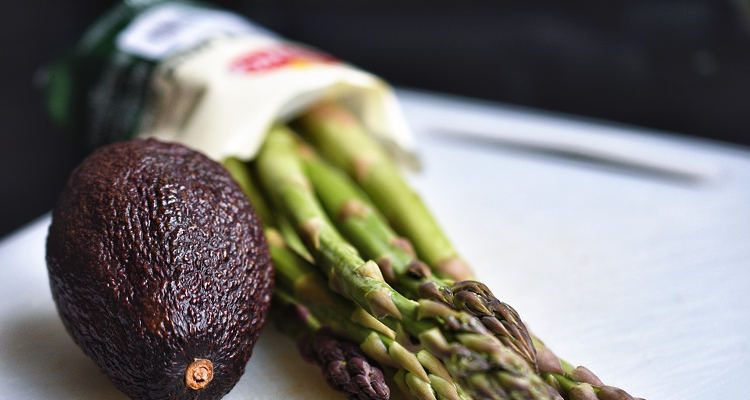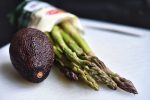
It is believed that following a vegetarian lifestyle leads to incomplete nutrition and lack of certain minerals and vitamins that are abundant in meat and animal products. Knowing the natural sources of zinc-rich foods for vegetarians will help them lead a healthy lifestyle.
Ensuring that we get the right amount of zinc in the diets is necessary. Read on to know what are the most important sources of this critical mineral and how much of it should be consumed by males and females daily.
Complete List of Zinc-Rich Foods for Vegetarians
List of Zinc-Rich Vegetables
So, what are the vegetables that should be included in the daily diet to get the daily dose of required zinc? Here’s a list of vegetables high in zinc.
1. Asparagus
It pairs well with grilled chicken, pasta, and other entrees. One cup of cooked asparagus has 1.08 milligrams of zinc.
2. Chickpeas
A cup of chickpeas in a salad or casserole or blended to make hummus can provide you with 1.59 milligrams of zinc.
3. Corn
Canned corn is found in many kitchens. It can be served as a side dish or added to soups or stews, and is a great add-in to many casseroles.
One cup has .56 milligrams of zinc.
4. Edamame
Edamame or soybeans are also a good source of zinc. One cup of this vegetable packs 2.12 milligrams of zinc.
5. Kidney beans
Ideal for a classic kidney bean salad, one cup (of rinsed beans) has 1.17 milligrams of zinc.
6. Spinach
This vegetable is a good plant source of zinc. A serving of 100 grams of spinach will provide you with 0.53 milligrams of zinc containing 23 calories.
Additionally, lima beans, morel mushrooms, palm hearts, russet potatoes, and sun-dried tomatoes also offer a rich source of zinc to meet the daily dietary requirements of adults—both male and female.
However, before making any dietary changes, talk to your physician. He or she can determine how much zinc you need for optimal health. You can then make an informed decision about which tasty vegetables to include in your diet to improve your health and immune system.
List of Zinc-Rich Fruits
Fruits can help us meet our dietary requirements of zinc as well. These fruits are rich in zinc:
1. Avocados
Avocados are excellent sources of zinc. One cup of this fruit offers almost one milligram of zinc. You can make guacamole dip with it or eat it whole as a snack.
2. Apricots
They are known to contain a good amount of zinc, especially the dried variety. A cup of fresh apricot has 0.33 milligrams of zinc, while one cup of dried apricots contains almost half a milligram of zinc.
3. Prunes
A one-cup serving of dried plums will provide you with 0.77 milligrams of zinc.
4. Blackberries
A cup of fresh blackberries has .53 milligrams of zinc. An ideal way to have this fruit is to eat it in the morning with a bowl of cereal or to mix it with some yogurt.
5. Raspberries
Raspberries also supply zinc in good amounts. They offer .52 milligrams of zinc per one-cup serving.
6. Raisins
Raisins are also considered zinc-rich fruits. These dried seedless grapes are packed with .32 milligrams of zinc.
7. Kiwi
These delicious and exotic fruits are loaded with vitamins and minerals. One of the important minerals in kiwi is zinc.
A cup of sliced kiwi will give your body about 0.25 milligrams of zinc.
8. Bananas
Extremely popular for their health benefits and easy availability, bananas also contain trace amounts of zinc along with potassium. A nine-inch banana will give as much as 0.23 milligrams of zinc.
9. Strawberries
Colorful, fragrant, and tasty, strawberries also replenish zinc levels in the body. A one-cup serving of strawberries has 0.23 milligrams of zinc to offer.
Other Vegetarian Sources of Zinc
Those who follow the vegetarian diet are almost spoilt for choice. There are so many zinc-rich foods out there to ensure that they get the required amount of zinc.
Here are a few other food sources that are packed with zinc:
1. Wheat germ
Wheat germ is an excellent source of zinc. A serving size of 100 grams of a toasted wheat germ can provide 17 milligrams of zinc.
2. Pumpkin seeds
We usually throw them away, but pumpkin seeds are excellent sources of essential minerals and vitamins. Pumpkin seeds contain 10.3 milligrams of zinc for every 100-gram-sized serving.
3. Sesame
Sesame seeds contain 10 milligrams of zinc per 100 grams. They are ideal for garnishing or as an additive in bread spread too.
4. Nuts
Nuts are a healthy snack and are loaded with zinc. They are easy to carry anywhere and can be consumed when needed.
Cashew nuts pack about 5.6 milligrams of zinc per 100-gram serving.
5. Dark chocolate
A piece of dark chocolate daily can be a great source to improve your zinc level. A serving size of 100 grams of dark chocolate contains 6.8 milligrams of zinc, which is about 45% Daily Value (DV).
Importance of Zinc and What Its Deficiency Can Lead To
Our body needs zinc in small amounts. There are multiple reasons why this mineral is vital for us. It helps to maintain our sense of smell, boost the immune system, and triggers vital enzymes when needed. It also assists in the formation of our DNA.
Zinc is also critical in other areas of health like vision, taste, hair, and skin. Zinc is believed to improve testosterone production in men. It also lessens PMS symptoms in women as well as boosts the health of prenatal babies.
A zinc deficiency can lead to numerous problems, including diarrhea, impotence, stunted growth, loss of appetite, hair loss, eye and skin lesions, and impaired immunity.
An ideal dosage is to take 40 milligrams of zinc orally. But, if you are planning to go for zinc supplements, make sure you consult your physician first.
Sources:
“Top 13 Zinc Rich Foods You Should Include In Your Diet,” Health Beckon, September 21, 2014; https://www.healthbeckon.com/zinc-rich-foods/, last accessed August 28, 2017.
“Top 10 Vegetables Highest in Zinc,” HealthAliciousNess, June 22, 2017; https://www.healthaliciousness.com/articles/zinc_vegetables.php, last accessed August 28, 2017.
Group, E., “8 Foods High in Zinc – What Are Their Benefits?” Global Healing Center, September 18, 2015; https://www.globalhealingcenter.com/natural-health/foods-high-in-zinc/, last accessed August 29, 2017.













